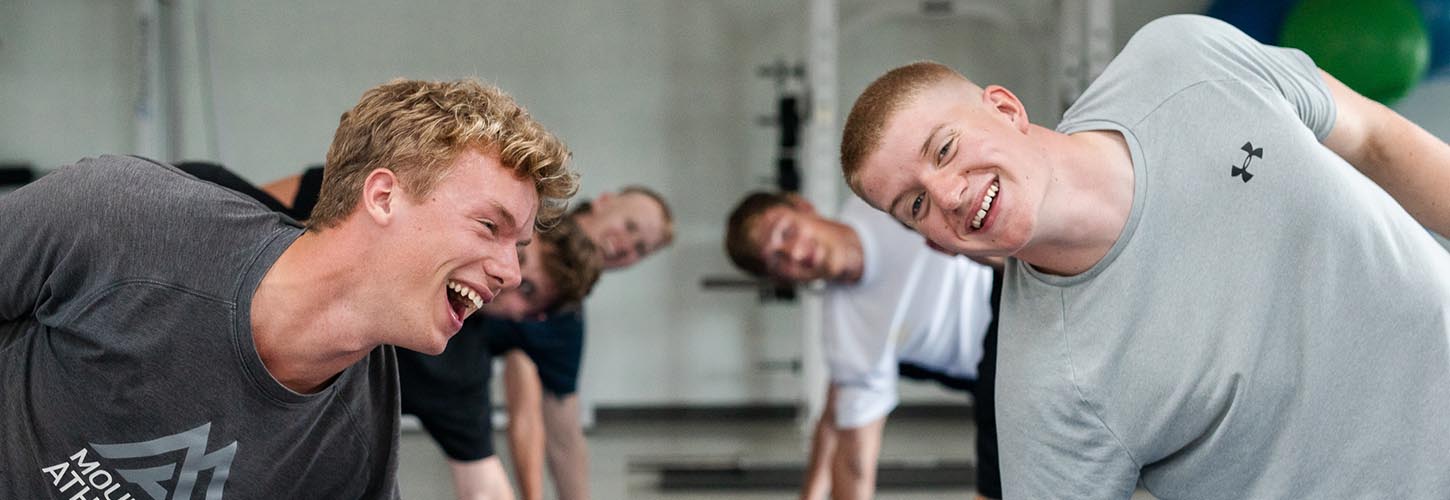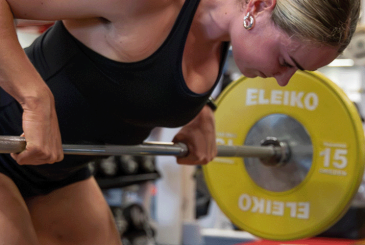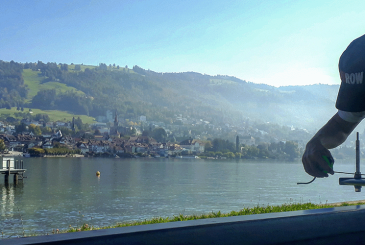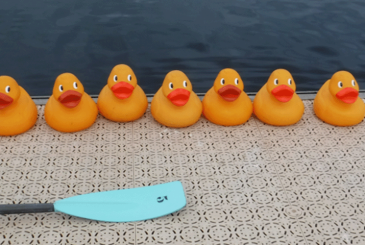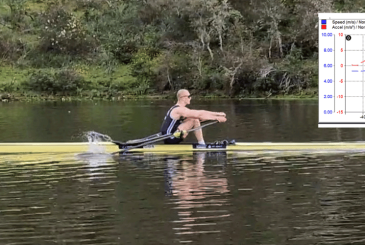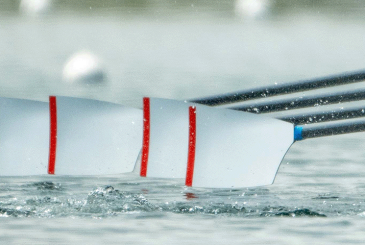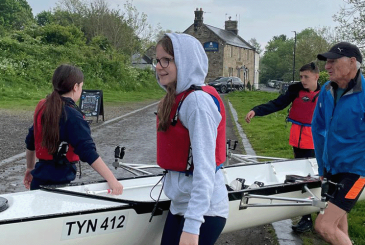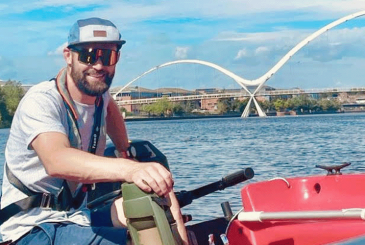Coaches Mark Bavington of Bedford Modern School and Pete Chambers of Marlow RC discuss creative approaches to ’emergency’ land training with Ira Dubey
Picture this: you’ve just got down to the boat club, it’s still dark and it’s five degrees. But the real problem is that the the stream’s roaring past, or the wind’s so bad that twigs are flying past, or even that there’s fog so thick you can’t see the other side of the river. Whatever the reason, you’ve got to cancel rowing for the day. But your squad’s going to start arriving in 10 minutes, and you want to make the most of the training session. What to do?
Organisation is key
When we think of a session off the water, our minds may immediately jump to our sport’s most-treasured piece of equipment – the ergo. If you have a large screen in your training room, one way you can make extra ergo sessions a bit different, is to use British Rowing indoor rowing resources to ‘take’ the workout and give your rowers a change from their usual coach’s voice.
But when you’re stuck indoors for several days or even weeks, more radical alternatives are probably needed.
“The key is to be as organised as you can, so you always have something in your pocket,” says Mark Bavington, head coach of Bedford Modern School. “With large squads of 80-90 athletes training at once, thinking up new sessions on your feet is extremely difficult.”
“Ultimately, we’re trying to keep it as light-hearted and as fun as possible. Students have turned up under the impression that they’ll get out on the water, but because they can’t, there will already be a degree of disappointment,” Mark explains. “You have to keep it engaging, and we do this by adding variety to the program.”
For Mark and other junior coaches alike, this often means large group activities for the younger members of the squad that are seen as a bit more fun. Crucially, this can be led by the older athletes. Activities include a team relay race (ergo and/or running-based) or something completely different, like Ultimate Frisbee.
For the older juniors, “it’s a chance for them to run the session, for them to get to know the younger students, and for the younger ones to look up and see the responsibility of their peers,” Mark explains. With the entire squad off the water and training together, this can be seen as the perfect opportunity to integrate different parts of the boat club that don’t normally mix, building unity and forging new friendships.
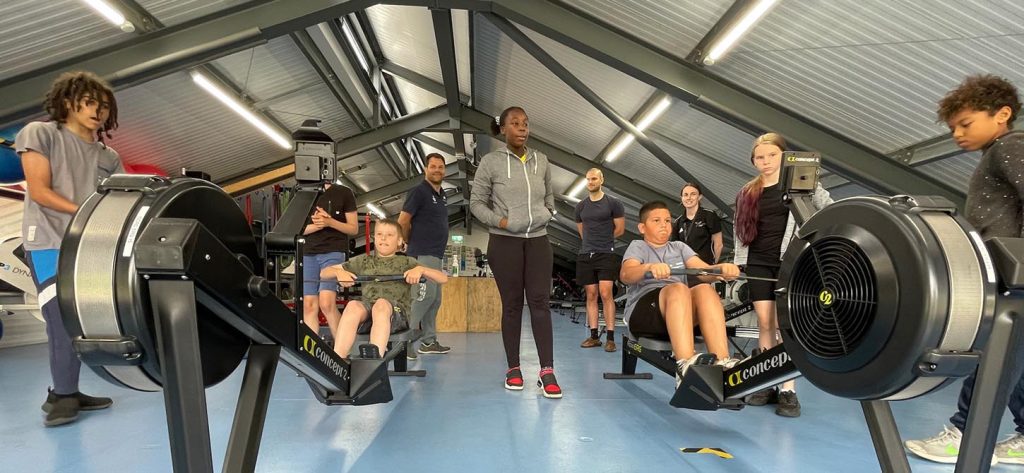
Staying on track for future success
For those looking to take their junior career to the next level, such as going through the process of GB trials, “losing a whole weekend can be a pain,” admits Mark. “Instead, these seniors might find themselves picking up extra weights or UT2 sessions to ensure they stay on track, but the main thing is that they’re still turning up with the rest of the squad, as opposed to doing their own thing in isolation.”
Pete Chambers, Junior Head Coach at Marlow RC agreed with Mark’s priorities but also highlighted the opportunity to try new things in training.
“We do things that we wouldn’t normally get the time for; a bit more core work, ergs on sliders, stuff like that,” Pete shares. “Something else the kids enjoy, provided we can sort the logistics of it, is hopping over to a nearby unaffected club and boating from there. While we include many different types of cross-training in our programme, nothing beats finally being able to get back on the water.”
Cardio, cardio, cardio
However, if you still aren’t able to go rowing, and want those endorphins from training in the great outdoors, both Mark and Pete are strong advocates of running.
“If you’re going to do something you wouldn’t normally do, it’s important to manage the duration you do it for. But we integrate running into our sessions almost every day, whether it’s the warm-up or the main part of the session itself,” explains Pete.
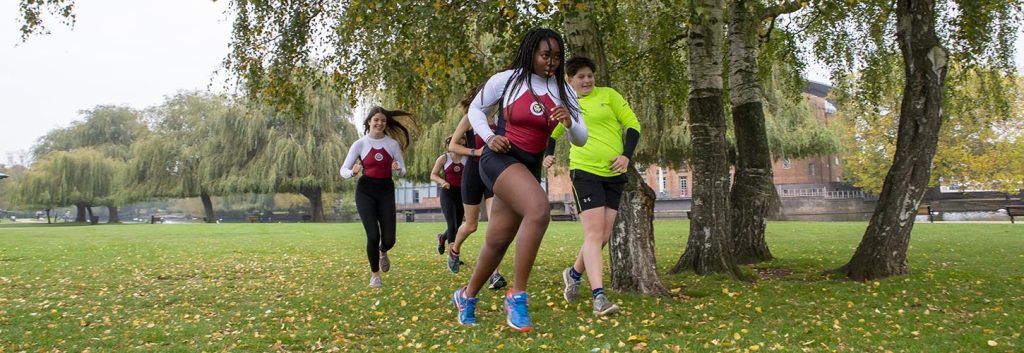
Mark also recognises the collective benefits of a good run, which compare with the positive feelings of a strong water session. “After a proper warmup, a run with your crewmates is always less painful than one on your lonesome, and most rowers find themselves able to run pretty well.”
“The key benefit of having a little bit of variety and a fair amount of cardio in your program all year is that athletes become more adaptable when the weather turns and the going gets tough,” Pete says.
So, while off the water, there are many ways to improve that all-round athlete ability, which can lead to added power back in the boat. The ergo is our go-to during land training, but by thinking outside the box with some creative cross-training, those winter mornings or evenings become slightly more bearable, and our juniors have fun along the way!
Sessions for adults
Mark’s and Pete’s ideas are ideal for keeping large numbers of juniors training, particularly when you have little notice that you can’t get on the water. But often you’ll know ahead of time that you won’t be able to row the following weekend, and there are options that are only really practical with adults too. In this situation, the GB Team physiologists recommend swimming and cycling as well as running as alternatives to yet more time spent on ‘the big grey trolley’.
Photo: Drew Smith


